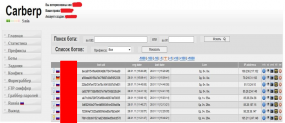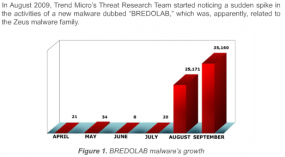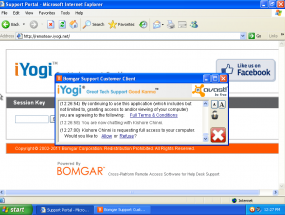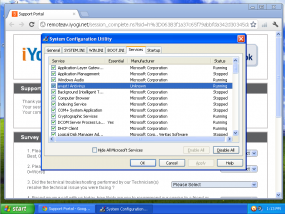If your computer is running Java and you have not updated to the latest version, you may be asking for trouble: A powerful exploit that takes advantage of a newly-disclosed security hole in Java has been rolled into automated exploit kits and is rapidly increasing the success rates of these tools in attacking vulnerable Internet users.
The exploit targets a bug in Java (CVE-20120-0507) that effectively allows the bypassing of Java’s sandbox, a mechanism built into the ubiquitous software that is designed partly to blunt attacks from malicious code. Microsoft’s Malware Protection Center warned last week that new malware samples were surfacing which proved highly effective at exploiting the flaw. Microsoft says the samples it saw loaded the ZeuS Trojan, but thieves can use such attacks to install malware of their choosing.
According to posts on several underground carding forums, the exploit has now been automatically rolled out to miscreants armed with BlackHole, by far the most widely used exploit pack. An exploit pack is a software toolkit that gets injected into hacked or malicious sites, allowing the attacker to foist a kitchen sink full of browser exploits on visitors. Those visiting such sites with outdated browser plugins may have malware silently installed, and Java is almost universally the most successful method of compromise across all exploit kits.
 According to software giant Oracle, Java is deployed across more than 3 billion systems worldwide. But the truth is that many people who have this powerful program installed simply do not need it, or only need it for very specific uses. I’ve repeatedly encouraged readers to uninstall this program, not only because of the constant updating it requires, but also because there seem to be a never-ending supply of new exploits available for recently-patched or undocumented vulnerabilities in the program.
According to software giant Oracle, Java is deployed across more than 3 billion systems worldwide. But the truth is that many people who have this powerful program installed simply do not need it, or only need it for very specific uses. I’ve repeatedly encouraged readers to uninstall this program, not only because of the constant updating it requires, but also because there seem to be a never-ending supply of new exploits available for recently-patched or undocumented vulnerabilities in the program.
Case in point: On at least two Underweb forums where I regularly lurk, there are discussions among several core members about the sale and availability of an exploit for an as-yet unpatched critical flaw in Java. I have not seen firsthand evidence that proves this 0day exploit exists, but it appears that money is changing hands for said code. Continue reading













